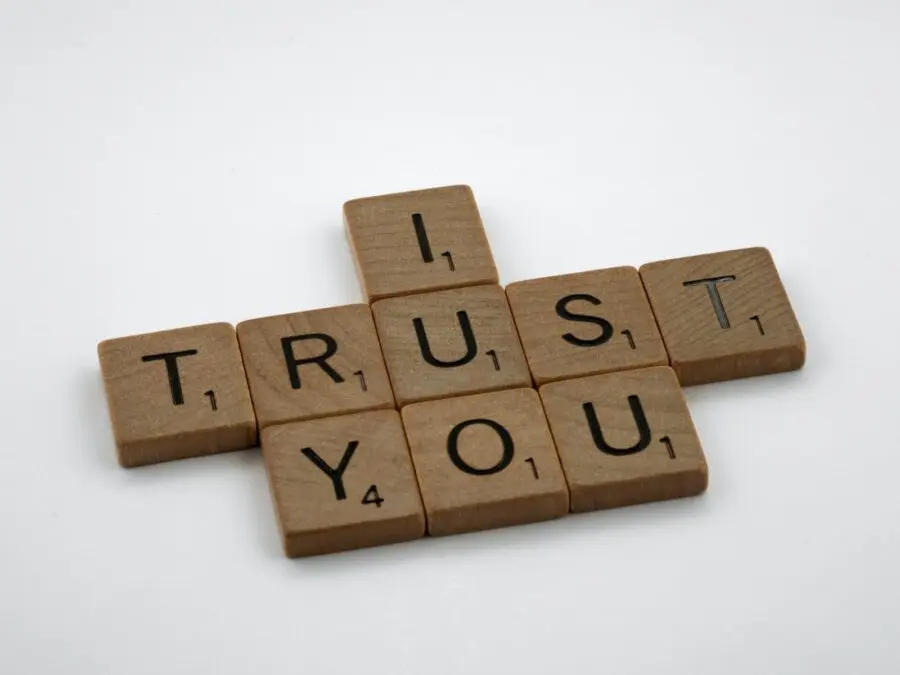Some weeks ago, the 2022 Edelman Trust Barometer, their 22nd annual trust and credibility survey, was launched.
The survey was powered by Edelman Data & Intelligence (DxI) and consisted of 30-minute online interviews conducted between November 1 and November 24, 2021, on more than 36,000 respondents from 28 countries, which means over 1,150 respondents by country.
The Edelman Trust Barometer 2022 reveals that businesses and NGOs are more trusted than governments and that most workers expect CEOs to be the “face of change”.
In fact, “High-income people have become more trusting of institutions, while low-income people have become increasingly distrustful.”
As far as the survey is concerned, trust has only one definition; it can be used as a noun or a verb: it’s a firm belief in the reliability, truth, or ability of someone or something.
The etymology is even more interesting:
Trust comes (c. for circa = about) from c. 1200 “reliance on the veracity, integrity, or other virtues of someone or something; religious faith,” from Old Norse traust “help, confidence, protection, support,” from Proto-Germanic abstract noun *traustam (source also of Old Frisian trast, Dutch troost “comfort, consolation,” Old High German trost “trust, fidelity,” German Trost “comfort, consolation,” Gothic trausti “agreement, alliance”), from Proto-Germanic *treuwaz, source of Old English treowian “to believe, trust,” and treowe “faithful, trusty”.
In the relationships that all bodies or companies build with their users, I believe “trust” is the final value.
I observed that the trust level within a company influences its ability to operate, lead, and achieve success within its member, but also in the face of its customers or members. Also, the foundation of an organization’s ability to take appropriate risks and recover from errors is the solid so-called “trust”.
It’s at long-term the strongest guarantee and the most refined road to growth for a firm. In the meantime, credibility is lost without trust, and reputation is jeopardized.
The author and businessman Stephen Covey said once, “Trust is the glue of life. It’s the most essential ingredient in effective communication. It’s the foundational principle that holds all relationships.”
What The Edelman Trust Barometer 2022 is all about is the social change, for more equity and close collaboration within the society from the institutions, the firms, and Government who have the role to provide protection, security, and help to the stakeholders who are creating a place where the “society” can exist, those who are close to them.
That finally said, “My Employer” is now the most trusted of any institution, at 77%, beside workers expect CEOs to be the “face of change”.
At the same time, apparently, distrust has become society’s “default emotion,” with 60% of people inclined to “distrust until they see evidence that something is trustworthy”-which could impede progress in addressing global challenges.
To resume on a positive highlight of How to rebuild trust
- Businesses and NGOs are seen as competent and effective drivers of positive change.
- Good information seems to be the missing ingredients that would close the societal divide.
- People want definitely more leadership, not less, combined with effectiveness.
- Long-term thinkingness for equity over immediate gain is the goal.
Nevertheless, the Trust in National Health Authorities, the World Health Organization, the United Nations, the European Union increases from 2021 to 2022.
A final note is social media which seems to be challenging some distrust from 2021.
Another good news is that if you’re an entrepreneur searching for a strong industry sector to invest in and create a business in, the following sectors have seen an increase in trust:
- Technology,
- Education,
- Healthcare,
- Manufacturing,
- Food and beverage,
- Automotive,
- Retail,
- Transportation,
- Professional Services,
- Telecommunication,
- Entertainment,
- Energy,
- Consumer Package Goods
Download the full 2022 report HERE







